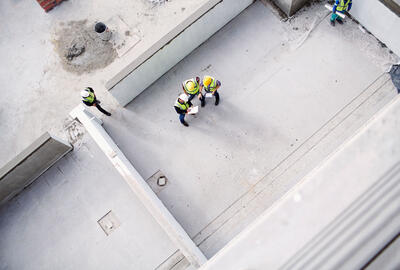A structural engineer is to an architect what a cinematographer is to a director, or an editor to an author.
You may not get the fame and glory but it’s a vitally important role. While an architect will draw up the plans it’s up to the structural engineer to make sure they are sound. It’s your job to make sure the structure, whether a building, bridge, road or aircraft doesn’t collapse, break, defect, vibrate and is generally fit for purpose.
An architect has the vision, a structural engineer will know all about the materials, the load bearing potential, the stresses and strains and the elements that will make it work. Fact: Graduate salaries start between £22,000 and £28,000 but a senior structural engineer can earn up to £70,000.
Day-to-day work in structural engineering jobs.
On a daily basis you’ll work closely with architects, other engineers and builders choosing the right material to be used to meet the design specifications. The work is mostly office-based with some site visits involved and more often than not 9-5. You’ll start as a construction designer but as your experience grows you’ll move onto project management, sometimes on your own or with a team.
Qualifications and experience.
If you’re determined to become a structural engineer, you’ll need a degree in structural or civil engineering accredited by the Institution of Structural Engineers (IStructE) which takes three or four years. You can enter with a non-engineering degree but realistically you’ll need to get an MSc in structural engineering to progress.
As a graduate engineer, you can work towards becoming an associate member or chartered member of IStructE – you’ll need on-the-job experience and to gain further professional qualifications. It’s worth pursuing though – becoming chartered is attractive to employers and can really help your career prospects.It’s possible to enter without a degree as long as you have a national diploma or equivalent in structural engineering. But you’ll only be able to progress so far and if you want to become chartered, then further qualifications are essential.
Skills.
Make sure you have good problem-solving, mathematical and analytical skills, they’re vital. A good grasp of physics, diagrammatic skills and computer literacy are also important, as is the ability to communicate well. You’ll also need good time management skills to be able to meet those all-important deadlines.
Opportunities.
As you progress you can move between a construction company or an engineering consultancy. With enough experience you could even set up your own consultancy one day, work as a self-employed contractor or undertake research.
Your skills will be in demand worldwide so you could find work around the globe – maybe even working on large-scale repair projects after a natural disaster like an earthquake.






